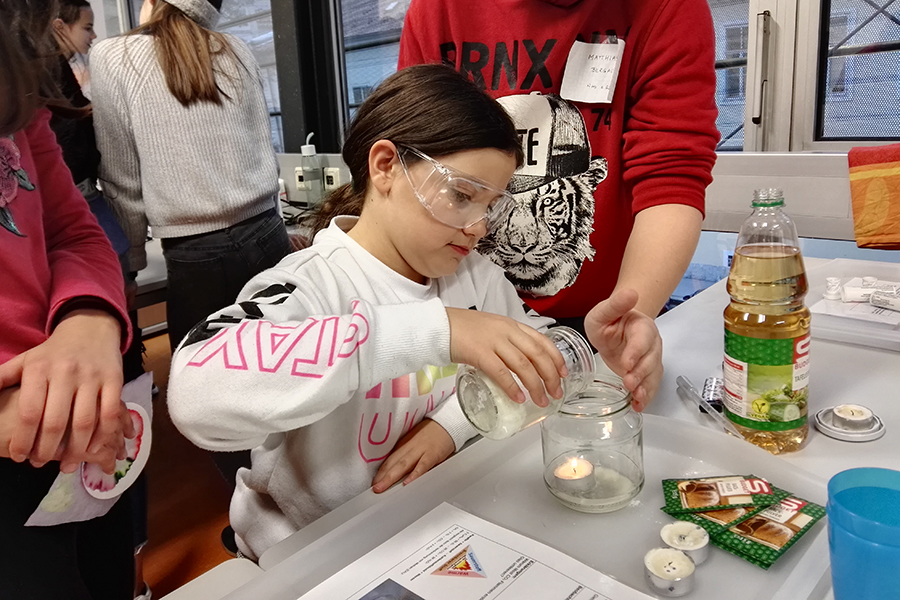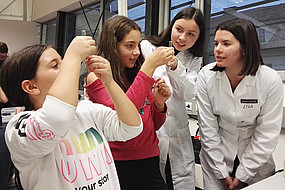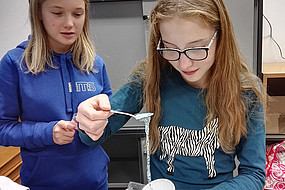Wie stellt man duftende Badekugeln oder Wärmekissen für die kalte Jahreszeit her? Wie kann man Säuren und Laugen in Alltagsprodukten erkennen? Und wie lassen sich mit Rotkraut tolle Bilder malen? All das und noch mehr demonstrierten SchülerInnen von acht steirischen Schulen am 12. Dezember 2019 an der Universität Graz.
„Yes – we chem“ lautete das Motto der Veranstaltung, mit der das Regionale Fachdidaktikzentrum Chemie gemeinsam mit dem Verband der ChemielehrerInnen Österreichs und dem Fachverband der Chemischen Industrie Österreichs zeigen wollte, wie faszinierend naturwissenschaftlicher Unterricht sein kann.
Bei ihren Experimenten wurden die knapp 90 SchülerInnen von LehrerInnen und Lehramtstudierenden der Universität Graz und Pädagogischen Hochschule Steiermark unterstützt. BesucherInnen waren eingeladen, sich von den spannenden Möglichkeiten der Unterrichtsgestaltung zu überzeugen und auch selbst mitzumachen.
Nach 2014 und 2016 fand „Yes – we chem“ heuer bereits zum dritten Mal statt, diesmal in den Räumlichkeiten des neuen Fachdidaktikzentrums für Naturwissenschaften und Mathematik (DINAMA) der Universität Graz in der Harrachgasse 21. DINAMA wurde Anfang November 2019 eröffnet. Es soll die Vernetzung der Fachdidaktik in den unterschiedlichen Disziplinen fördern, als Lehr- und Ausbildungszentrum die fachdidaktischen Kompetenzen der PädagogInnen weiter stärken und SchülerInnen in Lehr-Lern-Labors zusätzliche Erfahrungen mit Naturwissenschaften ermöglichen.


